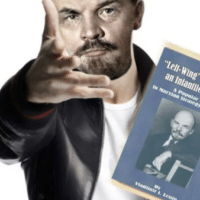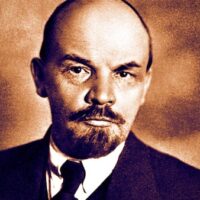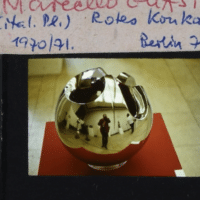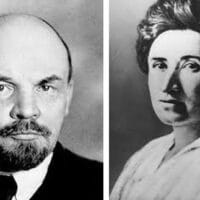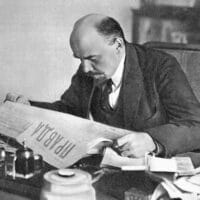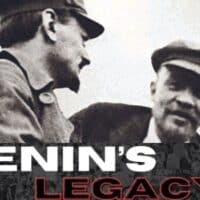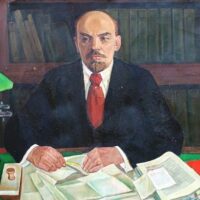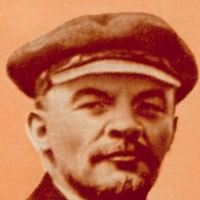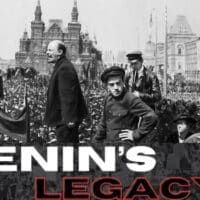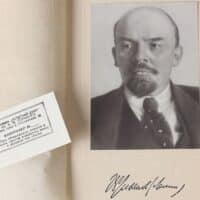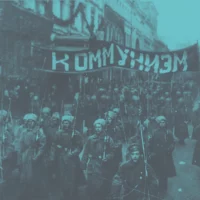-
Socialist politics and revolutionary compromise
In this article, I will discuss types of compromises and why they are necessary and possible.
-
Lenin’s contributions to political economy
Vladimir Lenin made many valuable contributions to Marxist political economy.
-
‘Principles and Methods of a Marxist Kunstwissenschaft—Attempt at an Outline’
It is not easy to explain in such a limited space which philosophical, methodological, and practical features characterize the study of Kunstwissenschaft that arose from the insights won by Karl Marx and Friedrich Engels and were enriched by Vladimir Lenin, as well as many other scholars and revolutionaries.
-
Today’s Lenin
The Rosa Luxemburg Stiftung, based in Berlin, recently issued a bulletin entitled, “Seven Reasons Not to Leave Lenin to Our Enemies.” This was intriguing because Rosa was one of Lenin’s sternest critics, and during the Cold War era, her works found print in the United States as vindication of current U.S. policies against the Soviet Union.
-
Lenin in his own words: five key texts
Vladimir Lenin, leader of the 1917 Russian Revolution, is one of history’s most well-known figures, and one of its most maligned. Mainstream culture vilifies him as a despot.
-
Lenin’s ‘Last Testament’: The prophetic last words of a Marxist for our times
The myth that Lenin led to Stalin is exposed by Lenin’s Last Testament which argues for more democracy and removing Stalin from power, writes John Westmoreland.
-
Five of Lenin’s insights that are more pertinent than ever
Lenin’s understanding of the workers state must also take into account the adjustments that had to be made in the post-revolutionary period, when it became clear that emphasis had to be put on developing the productive forces and an efficient state that could guide the process of destroying the global inequalities between imperialist and imperialized nations.
-
Lenin: Architect of the Worker-Peasant Alliance
Among the many seminal theoretical contributions made by Lenin to Marxism was his pioneering of the concept of the worker-peasant alliance for a socialist revolution.
-
Learning from Lenin today
One hundred years since Lenin’s death, Nigerian socialist Abiodun Olamosu describes of the revolutionary on his own political development. As the preeminent organiser of the Russian revolution, Lenin helped to determine the course of Olamosu’s life in Nigeria. Olamosu explores the development of Lenin’s work and legacy. He regards Stalin’s rise to power, and the Soviet Union, as an abomination to the body of ideas of Marxism and socialist internationalism.
-
“War and Lenin in the 21st Century”
As in Lenin’s time, the conclusion is that socialist revolution will end imperialist war, enabling workers to meet their own needs.
-
Lenin and his times
This is an extract from the introduction to Alex Snowdon’s forthcoming book on Lenin, to be published by Counterfire, where he outlines the key stages of Lenin’s life as a revolutionary.
-
‘Lethal assets’: U.S. finance capital owns the bombs falling on Palestine
Lenin on the economic essence of war.
-
Lenin for the New Year
As the 100th anniversary of Lenin’s death approaches, here are ten books to help renew the Leninist tradition for the crises ahead, compiled by Dominic Alexander.
-
Lenin still haunts the Russian ruling class
“In fact, Zelenskiy is far closer to Lenin than to George Washington. He is a dictator. He is a dangerous authoritarian who has used $100 billion in U.S. tax dollars to erect a one-party police state in Ukraine.” Who wrote this? It is the opinion posted on Twitter by Margarita Simonyan, editor-in-chief of the Russia Today TV network (since 2005) and the Sputnik news agency (since 2014).
-
Lenin’s ‘The State and Revolution’
The starting point for his argument was the class nature of the capitalist state. Drawing on the writings of Marx and Engels, Lenin demolishes the idea that the state is a neutral body standing above social classes. Instead, he argues that the state exists as a means for one class to maintain its dominance over another.
-
Understanding war: Lenin’s ‘imperialism: The highest stage of capitalism’
The outbreak of World War I ushered in a new age of barbarism in Europe.
-
Africa was at the centre of Lenin’s work
Vladimir Ilyich Lenin, the father of Bolshevism, never stepped foot in Africa, but his influence upon the continent has been tremendous. Alongside the ideas of Karl Marx and Frederick Engels, Lenin’s revolutionary theories provided the framework for an entire generation of African socialists during the twentieth century.

